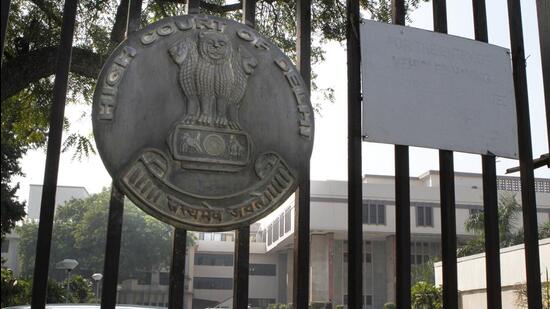DNPA, HT, Express, NDTV seek to join ANI lawsuit against OpenAI
The intervention application, filed before the next hearing in ANI’s copyright lawsuit, argued that companies like OpenAI violate intellectual property rights.
The digital arms of three major news publishers --- HT Digital Streams (HT Media), IE Online Media Services Private Limited (Express Group), and NDTV Convergence -- along with industry body Digital News Publishers Association (DNPA) on Monday filed an intervention application in the Delhi high court in news agency ANI’s copyright lawsuit against OpenAI.

They sought to be heard as the jurisprudence set by the case will have an impact on how news is collected and disseminated.
The intervention application was filed a day before the next hearing in the case. DNPA and the publishers submitted that companies such as OpenAI violate intellectual property rights when they use their content and information on their websites and other platforms without licences, authorisation, or permissions.
The application noted that OpenAI has licensing deals with international news publishers such as Associated Press, The Atlantic, and News Corp, to access their content to train OpenAI’s models and to use it in their outputs. It said that this is a “clear admission” that OpenAI needs licenses or permissions to use the content to train AI models. By failing to enter such deals with Indian publishers, OpenAI’s “conduct in India betrays an inexplicable defiance of law and reveals their dishonest intentions”.
DNPA said it has been trying to address the challenges Big Tech platforms, particularly search engines, social media platforms, and web scraping services, posed. It said that such entities often monetise news content without having any proper revenue sharing arrangement.
The intervention application said search engines act as the primary gateway for users when accessing news, giving them increased control over audience reach. DNPA has argued this at multiple forums, including before the Union information and broadcasting ministry.
The publishers argued that OpenAI’s activities have “resulted in irreparable and ongoing loss” for the Indian news industry. “This revenue loss would eventually and surely result in significant reductions in newsroom investments and diminish any business inventive to employ journalists nationwide,” the application said, stating that outcome of the case will affect the livelihoods of journalists employed by DNPA members and the entire Indian news industry.
DNPA and the digital publishers submitted that OpenAI’s move from a not-for-profit to a profit-driven enterprise was unsurprising as it benefits from “illegal and infringing activities at the cost of the creative works of the entire industry”. This, they said, would affect “the quality, reliability and plurality” of news produced and distributed in India, leading to a “weakened press”. They further submitted that Indian public would be subjected to OpenAI’s “opaque algorithmic arbitrariness” which is under the control of a foreign entity “which reject the jurisdiction of Indian courts”.
In its initial response to the ANI lawsuit, OpenAI submitted that Indian courts did not have jurisdiction in this case as all the processing and storage were done on servers outside India.
The Federation of Indian Publishers, another industry body, this month sought to join the lawsuit, arguing that the impact of the case is not limited to news publishers and agencies.
OpenAI, in a response filed on Monday, sought to get FIP’s application dismissed, and specifically denied that the book publishers’ copyrighted “original literary works” had been used to train the large language models (LLMs) underlying ChatGPT. It denied that its web crawlers had sourced content from publishers that was not already publicly available online.
In its responses to the original ANI lawsuit and FIP’s application, OpenAI said that its web crawlers can only access publicly available data and are designed to not circumvent technical access controls such as log-ins or paywalls. It said that it uses “only the non-expressive, statistical characteristics of data to train its LLM, and not the expression contained therein”.
On November 18, the single-judge bench of Justice Amit Bansal appointed academic Arul George Scaria and lawyer Adarsh Ramanajun as amici curiae to assist the court in the matter. Both have submitted their reports to the court.
An OpenAI spokesperson, in a statement to HT, said, “[W]e build our AI models using publicly available data, in a manner protected by fair use and related principles, and supported by long-standing and widely accepted legal precedents.”
“We take great care in our products and design process to support news organizations. We are actively engaged in constructive partnerships and conversations with many news organizations around the world, including India, to explore opportunities, listen to feedback, and work collaboratively. Along with our news partners, we see immense potential for AI tools like ChatGPT, including through search, to deepen publishers’ relationships with readers and enhance the news experience,” the spokesperson said.
Lawsuits have been filed against OpenAI, Meta, Anthropic, Perplexity, and other AI companies globally for violating the copyright of content creators, including news publishers, book publishers, and music producers. Most of them argue that AI companies use copyrighted and often paywalled content to train their models, churn out results in chatbots, and drive online traffic away from the original websites and creators, thus depriving them of revenue. None of the lawsuits anywhere, including in the US, have yet concluded.
Users have also filed lawsuits against social media companies such as LinkedIn for using their private messages and public posts to train AI algorithms without consent.
This story was updated.






